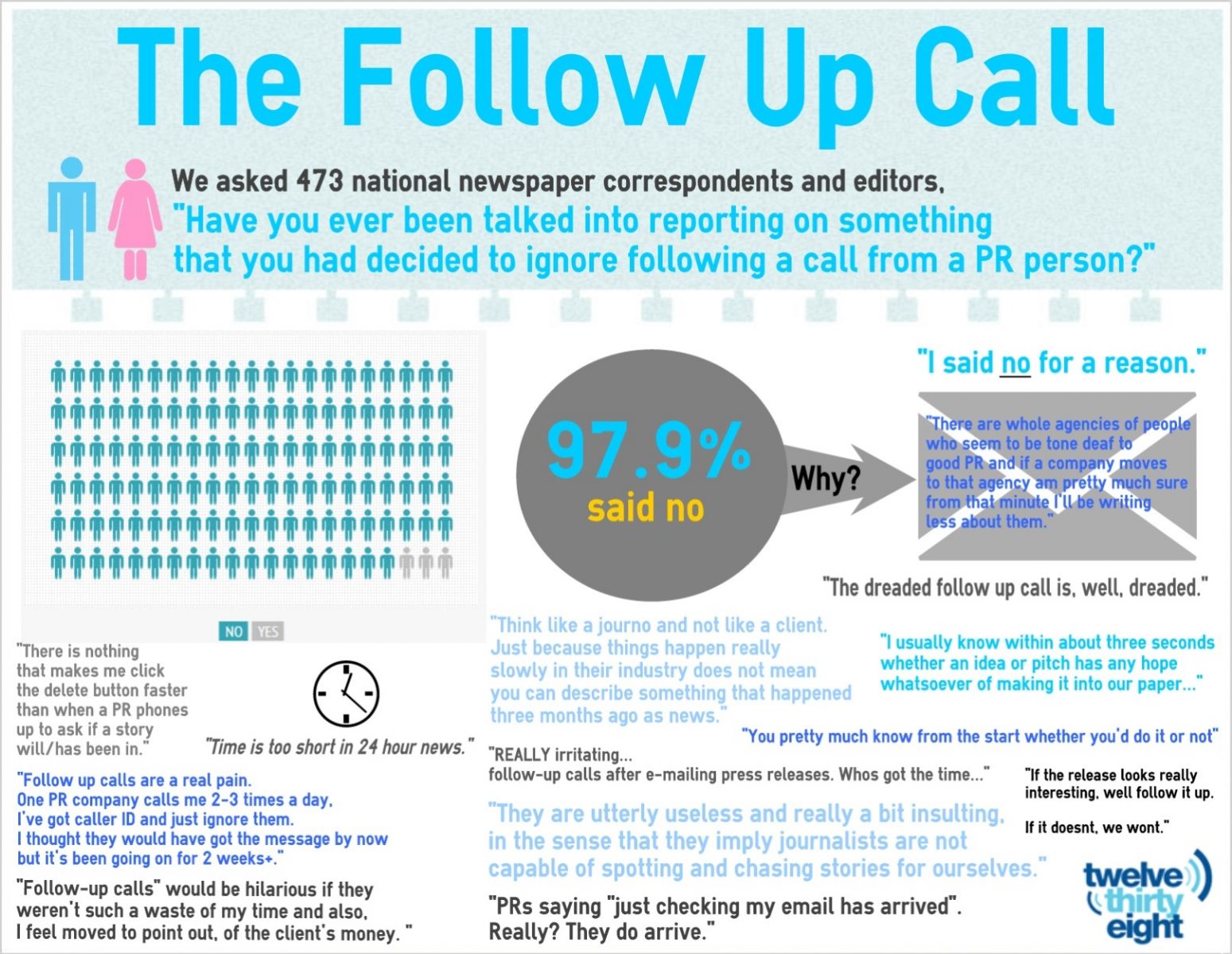Journalists do not like receiving follow-up calls, claims a recent study by PR consultancy Twelve Thirty Eight. Nearly five hundred (473) correspondents and editors replied to an email asking them “Have you ever been talked into reporting on something that you had decided to ignore following a call from a PR person?“ An emphatic 97.9 per cent said “No”.
Hamish Thompson, managing director at Twelve Thirty Eight, says that he has always been sceptical about the value of these calls: “My rationale is that journalists are hugely over-stretched and they simply don’t have time to field calls. Each call represents a couple of minutes that the journalist won’t get back. In my view, it’s the quality of the story that matters and makes a difference.”
Thompson says this does not mean PROs should be limited to communicating only via e-mail, he explains: “There are some occasions when a call makes sense. There is also a role for texts, tweets, direct messages, etc. We live in a world built around less obtrusive triggers."
As time is money in PR, Thompson points out that PR agencies are wasting a vast sum making unwanted calls: “The top 150 agencies in the UK have a combined fee income of £1 billion. Let’s assume (conservatively) that 10 per cent of that fee goes on “sell-in” calls. Imagine if that money was spent on better ideas.”

Ten responses from journalists
“Follow-up calls after e-mailing press releases are REALLY irritating. Who’s got the time?”
“The dreaded follow-up call is, well, dreaded.”
“My quick response to these calls combines sex and transport.”
“Ringing me up repeatedly will not make it go in, it will do the opposite.”
“Time is too short in 24 hours.”
“It’s quite clear from the email if the opportunity is something we’d like to follow up on or not.”
“I have never, ever been talked into reporting something through a follow-up call. They are utterly useless and really a bit insulting, in the sense that they imply journalists are not capable of spotting and chasing stories for ourselves.”
“The thing is people doing follow-up calls are rarely the ones who know the story best, so are unlikely to be able to offer any new kind of angle that might make you rethink not running it.”
“I find it frustrating when PROs call up to see if the article has been published rather than carrying out a simple search on the site themselves.”
“Nope, the call doesn’t last that long.”
Methodology
Twelve Thirty Eight e-mailed 2,000 national newspaper correspondents and editors in August 2013 to ask for their opinions about follow-up calls, the findings above are based on the 473 responses.
PRmoment Leaders
PRmoment Leaders is our new subscription-based learning programme and community, built by PRmoment specifically for the next generation of PR and communications leaders to learn, network, and lead.
PRmoment LeadersIf you enjoyed this article, sign up for free to our twice weekly editorial alert.
We have six email alerts in total - covering ESG, internal comms, PR jobs and events. Enter your email address below to find out more:









